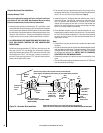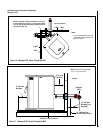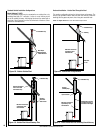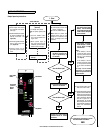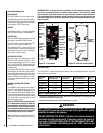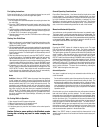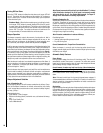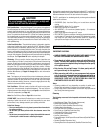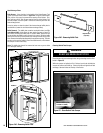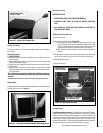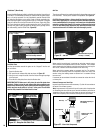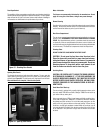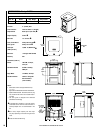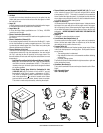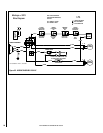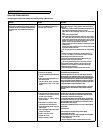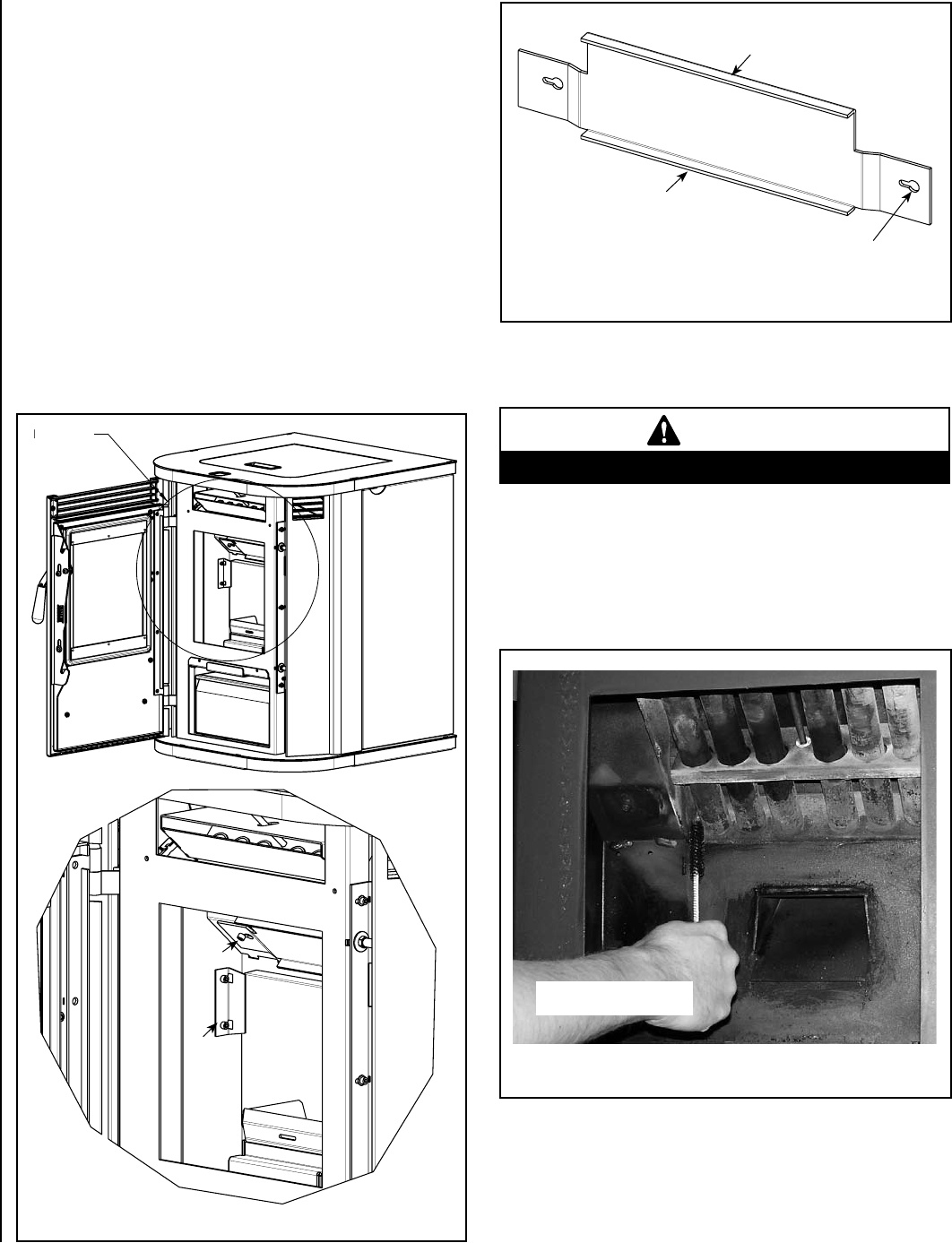
22
Heat Exchange Tubes
Tube Scraper - Using the hole in the handle of the Grate Scraper Tool
“grab” the scraper rod as shown in Figure 26. Using the Grate Scraper
Tool, pull the rod up and out towards the opening of the firebox. Con
-
tinue pulling until the Tube Scraper reaches the top of the firebox. Pull
the tube scraper out, then repeat 2–3 times to remove fly-ash from the
heat exchange tubes.
It may be easier to clean the tubes if the heat exchanger baffle plate is
removed first (located in the firebox below exchange tubes).
Baffle Removal - The baffle plate contains two keyhole slots (see Fig
-
ures 24A and 24B), which allows the two retaining screws to remain in
place while removing the baffle plate. To remove baffle, loosen the two
screws holding the baffle in place (do not fully remove). Slide the baffle
plate to the left until the screw heads clear the open end of the key hole
slots. Remove the baffle plate diagonally through door opening. The tube
scraper rod can now be pulled in a more horizontal manner, which allows
the scraper to move more freely.
Note:
The baffle plate should be removed at least once a year to allow
for a thorough cleaning.
Figure 24B - Removing Baffle Plate
Figure 25 - Clean Behind Tube Scraper
(Recommended Frequency
of 2 weeks - 2 months)
Front
Back
Keyhole Slots
(2 places)
Baffle Plate
WARNING
DO NOT USE BRUSH ON HOT STOVE
Clean between the heat exchange tubes using a cleaning brush as illus-
trated in Figure 25.
With tube scraper rod pulled out 2 to 3 inches, insert brush behind tube
scraper and remove ash build-up. Clean to the left and right side of heat
exchanger, between tubes and the top of the firebox.
Cleaning Behind Tube Scraper
DETAIL A
DETAIL A
Figure 24A - Removing Baffle Plate
Baffle
Plate
Baffle
Screw
Brick
Panel
Brick
Retaining
Bracket
NOTE: DIAGRAMS & ILLUSTRATIONS ARE NOT TO SCALE



